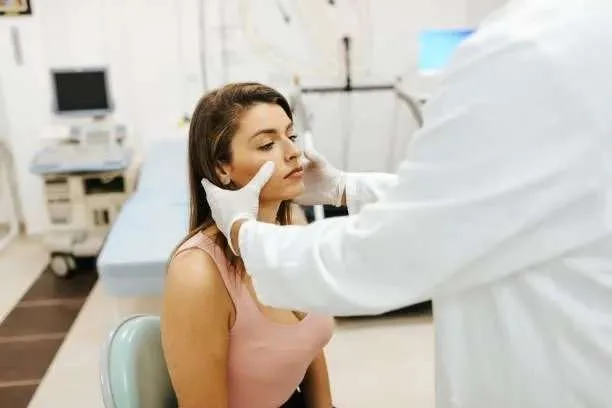Sinus infections, also known as sinusitis, can leave you feeling miserable. The congestion, facial pressure, and headaches often associated with this condition can disrupt daily routines and impact overall well-being. While many sinus infections resolve on their own or can be managed with natural remedies, there are times when professional medical care is necessary.
This blog explores effective natural treatments for sinus infections, provides guidance on when to seek urgent care , and highlights preventative steps to reduce the risk of recurring infections.
Understanding Sinus Infections
A sinus infection occurs when the sinuses—air-filled cavities in the face—become inflamed or swollen. This inflammation can block mucus drainage, leading to uncomfortable symptoms.
There are two primary types of sinusitis:
- Acute Sinusitis: A short-term infection, often caused by a virus like the common cold, lasting up to four weeks.
- Chronic Sinusitis: A long-term condition with persistent inflammation lasting more than 12 weeks, which can result from bacterial infections, structural issues, or prolonged allergies.
Common Symptoms of Sinus Infection
- Nasal congestion or blockage, making it difficult to breathe.
- Facial pain, pressure, or tenderness around the eyes, nose, or forehead.
- A thick, yellow, or green nasal discharge.
- Decreased or lost sense of smell and taste.
- Fatigue caused by poor sleep due to congestion.
- Coughing, often worse at night due to mucus drainage down the throat.
- Fever, though more common in bacterial infections.
Related blog: Cold, Flu, or Allergies? [Symptoms and Treatment]

Natural Remedies for Sinus Relief
For mild to moderate sinus infections, natural remedies can help ease discomfort and promote recovery. These approaches are affordable, accessible, and often very effective.
1. Stay Hydrated
Keeping your body hydrated thins mucus, making it easier to drain. Dehydration can make mucus thicker and harder to expel, worsening symptoms.
- What to Do:Drink 8–10 glasses of water daily. Supplement with herbal teas, broths, or electrolyte drinks.
- Example:Sipping warm chamomile tea with honey not only hydrates but also soothes sore throats often associated with sinus infections.
Tip:Avoid caffeinated drinks and alcohol, as they can cause dehydration and exacerbate symptoms.
2. Steam Therapy
Steam inhalation is one of the simplest and most effective ways to open clogged nasal passages and relieve sinus pressure.
- What to Do:Boil water and pour it into a bowl. Lean over it, covering your head with a towel to trap the steam. Inhale deeply for 10–15 minutes.
- Example:Add a few drops of eucalyptus or tea tree oil to the water for antimicrobial and anti-inflammatory benefits.
Alternative:Take a hot shower and breathe deeply, letting the steam work its magic.
3. Use Saline Nasal Sprays or Rinses
Saline solutions flush out irritants, allergens, and mucus from nasal passages while reducing inflammation.
- What to Do:Use a store-bought saline spray or make your own solution with distilled water, salt, and baking soda. Administer with a neti pot or bulb syringe.
- Example:A daily nasal rinse during allergy season can help prevent sinus infections triggered by allergens.
Caution:Always use sterile or distilled water to avoid introducing harmful bacteria into your sinuses.
4. Apply Warm Compresses
Warm compresses increase blood circulation in the sinus areas, reducing swelling and easing pain.
- What to Do:Soak a clean cloth in warm (not hot) water, wring it out, and place it over your forehead and cheeks for 10–15 minutes.
- Example:Use this remedy before bed to alleviate discomfort and improve sleep.
5. Strengthen Your Immune System with Nutrition
Certain foods and nutrients can help your body fight off infections more effectively.
Examples:
- Ginger tea with lemon is anti-inflammatory and soothing.
- Raw garlic, known for its antibacterial properties, can be added to meals or consumed with honey.
- Vitamin C-rich foods like oranges, strawberries, and red peppers boost your immune system.
- Probiotic-rich foods such as yogurt and kefir support gut health, which plays a crucial role in overall immunity.
6. Essential Oils for Sinus Relief
Essential oils can be potent allies in managing sinus infections.
Examples:
- Eucalyptus oil, known for its decongestant properties, can be added to a diffuser or steam therapy.
- Peppermint oil provides a cooling sensation and can alleviate headaches or migraines .
- Lavender oil promotes relaxation and can reduce stress-induced sinus symptoms.
Safety Tip:Always dilute essential oils with a carrier oil before applying them to your skin, and never ingest them without professional guidance.
7. Rest and Sleep
Adequate rest allows your body to focus its energy on healing. Elevate your head with extra pillows while sleeping to encourage sinus drainage and reduce pressure.
When to Seek Urgent Care for a Sinus Infection
While most sinus infections resolve with time and home care, certain symptoms require prompt medical attention. Knowing when to visit urgent care can prevent complications and ensure a faster recovery.

1. Symptoms Persist Beyond 10 Days
If your symptoms linger or worsen after 10 days, it could indicate a bacterial infection requiring antibiotics.
Example:A sinus infection that starts mild but doesn’t improve despite using remedies like steam therapy or saline sprays.
2. High Fever
A fever above 102°F, especially when paired with facial pain or swelling, could suggest a severe bacterial infection.
3. Symptoms Worsen After Improvement
Sometimes a viral sinus infection improves, only to relapse with more severe symptoms. This pattern often signals a secondary bacterial infection.
Example:You feel better after a week but suddenly develop intense facial pain and thick, yellow-green nasal discharge.
4. Intense Facial Pain or Swelling
Severe pain, swelling, or redness around the eyes, cheeks, or forehead could indicate a deeper infection, such as an abscess or orbital cellulitis.
5. Vision or Neurological Symptoms
Blurry vision, double vision, confusion, or a stiff neck may point to rare but serious complications, such as meningitis. Seek immediate medical care in these cases.
6. Recurrent Infections
Frequent sinus infections may signal underlying problems, such as nasal polyps, deviated septum, or untreated allergies, which require further evaluation.
Read this next: Most Common Conditions Treated in Urgent Care Clinics: A Comprehensive Guide
What to Expect at Urgent Care
Urgent care clinics offer a range of services to treat sinus infections effectively:
- Antibiotics:Prescribed if a bacterial infection is confirmed.
- Decongestant Nasal Sprays:To reduce swelling and improve drainage.
- Imaging Tests:If complications or structural issues are suspected.
- Pain Management:Recommendations for over-th e-counter or prescription pain relief.
Ways to Prevent Sinus Infections
Taking preventive steps can minimize your risk of sinus infections:
Allergies often trigger sinus issues. Use antihistamines, nasal sprays, or consult an allergist for personalized treatment.
2. Maintain Nasal Hygiene
Use saline sprays or rinses regularly to clear allergens and debris from nasal passages.
3. Stay Hydrated and Humidify Your Home
Dry air can irritate nasal passages. A humidifier can add moisture to the air, especially during winter months.
4. Avoid Smoking and Pollutants
Smoking irritates nasal passages and increases the risk of infections.
5. Support Your Immune System
A diet rich in fruits, vegetables, and lean proteins, along with regular exercise and quality sleep, boosts overall immunity.
Walk In With Us
Sinus infections can range from a minor inconvenience to a significant health concern. While natural remedies provide effective relief for mild cases, persistent or severe symptoms require professional evaluation.
Knowing when to seek urgent care ensures timely treatment and prevents complications. By combining natural remedies, medical care, and preventive measures, you can manage sinus infections more effectively and reduce the likelihood of recurrence. Check in with us at UrgiClinic Urgent Care today!




